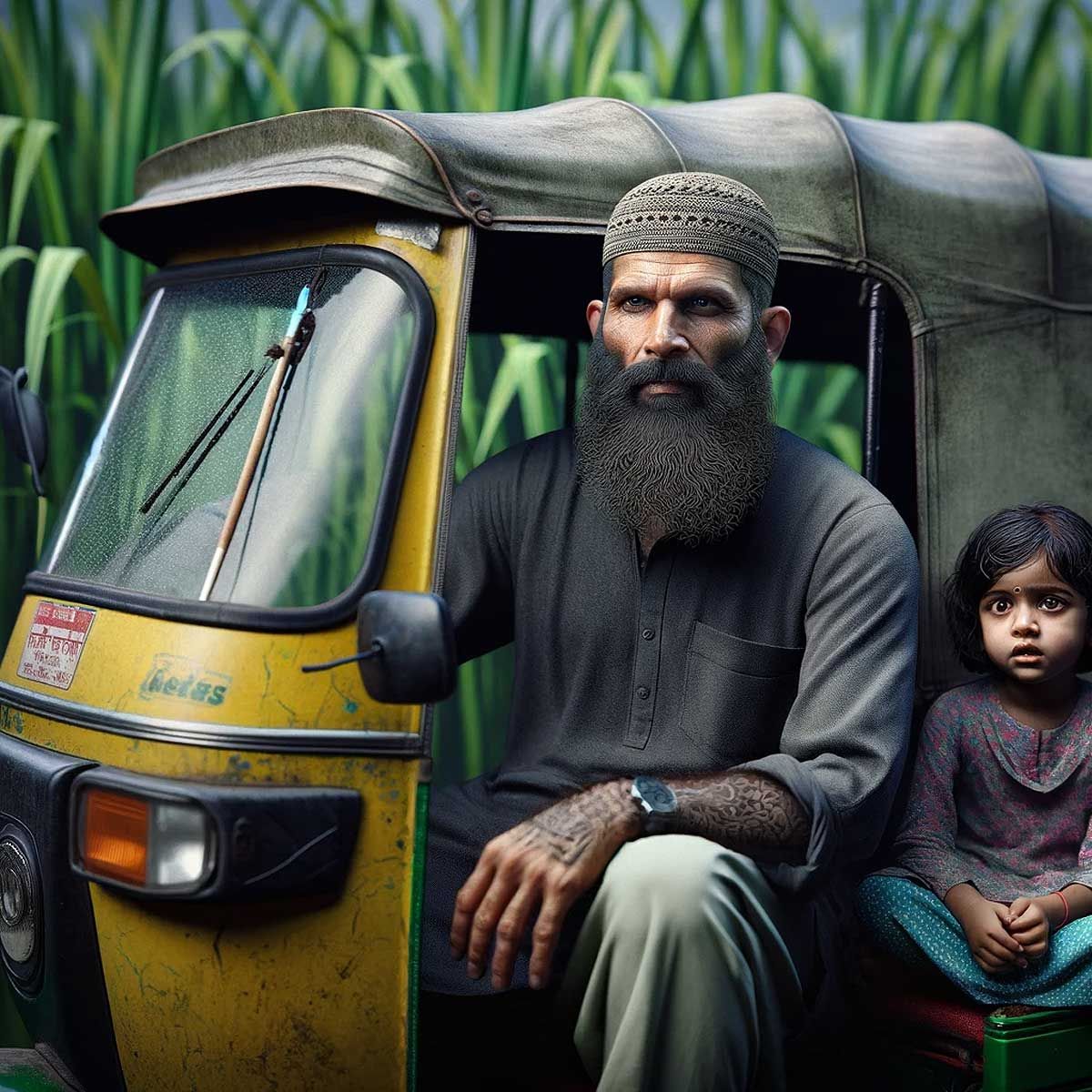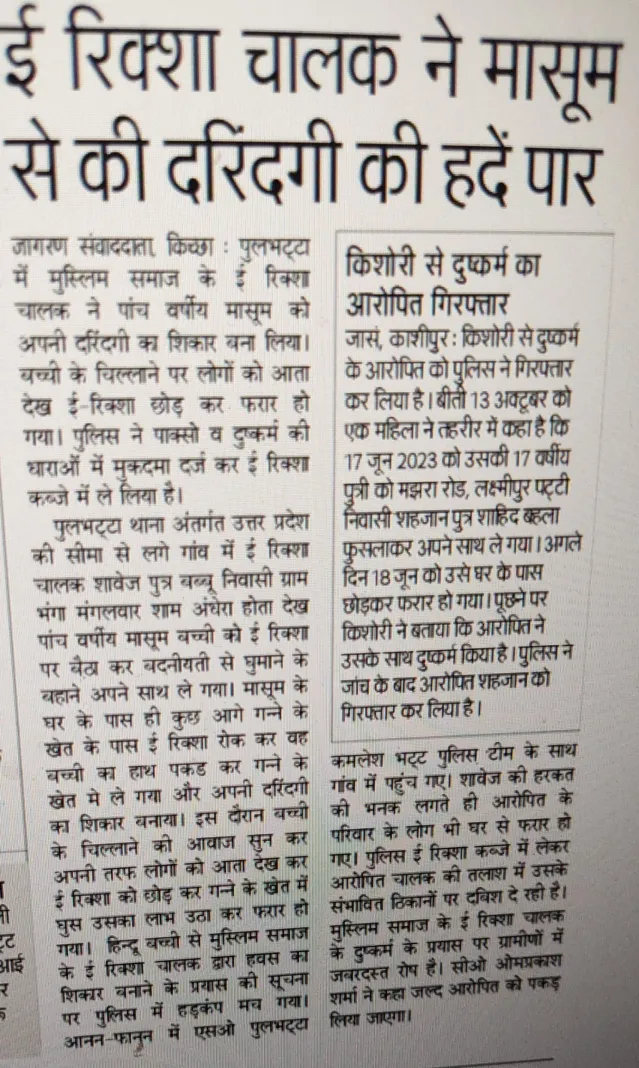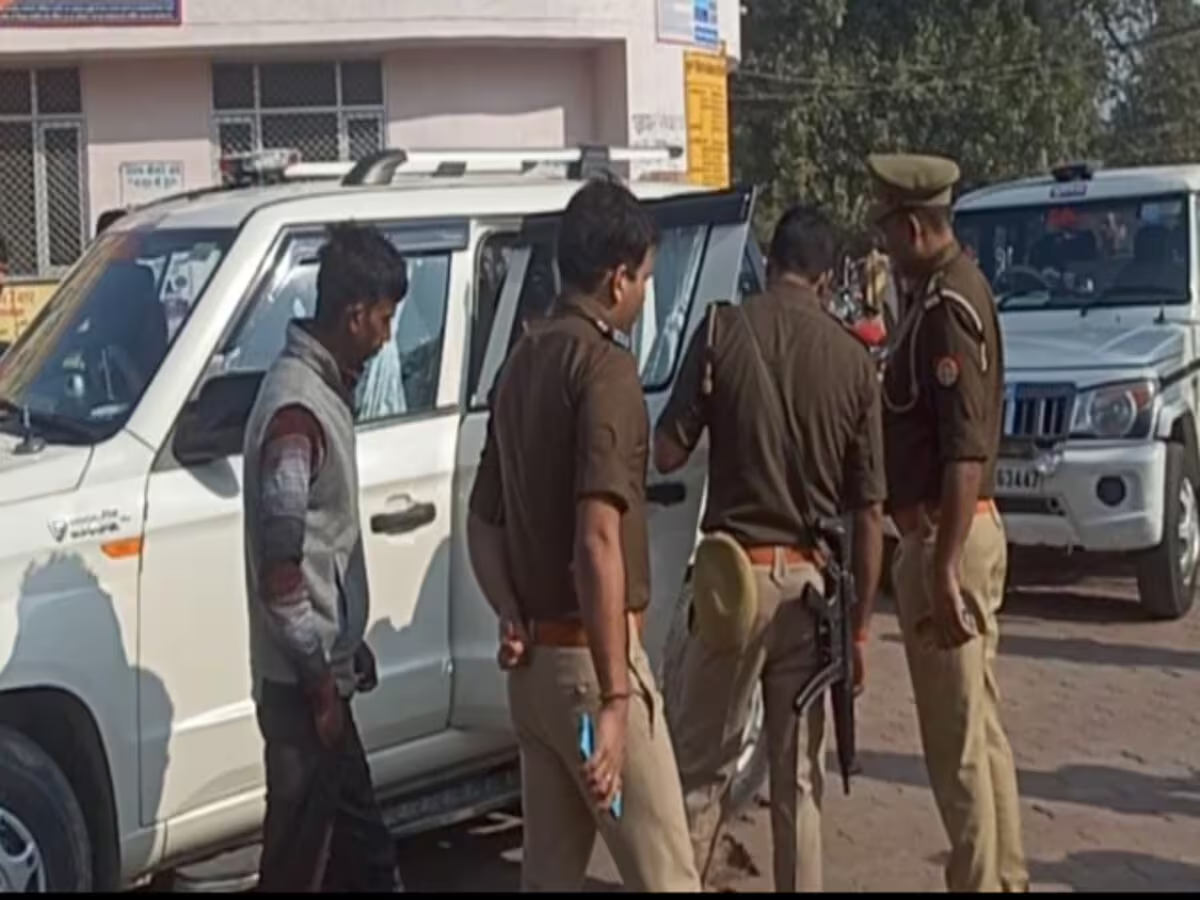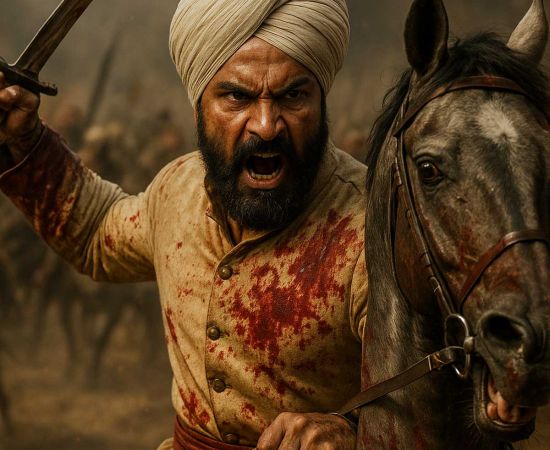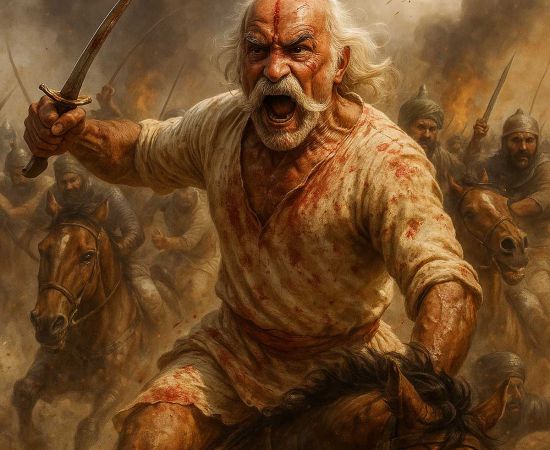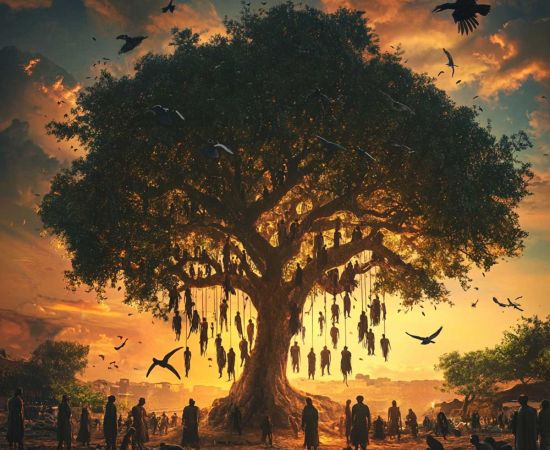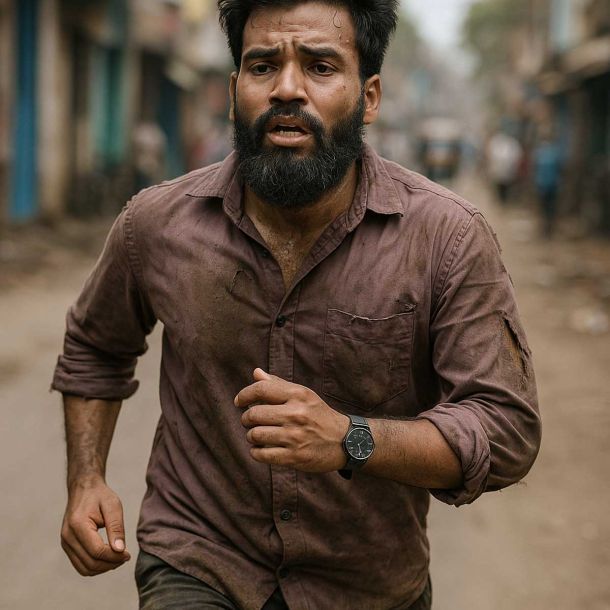Rape is not a sin in Islam, but worse than this, it has two laws that allow it. First, husbands can have sex with their wives whenever they want (marital rape); [Q2:223] Second, a divorced “child wife” who has NOT had a period must wait 3 months before remarrying (this assumes statutory rape has occured); [Q65:4] Also, the Hadith shows that Muhammad did not stop soldiers who wanted to have sex with their female captives, this implies that he condoned their rape. In Islam captives, wives, and child wives can be raped. Rape in Islam is not a cultural problem, it is a problem with Islam!.
Muslim men can rape their child wives
Iddah is the waiting period required for divorced women (and girls) before they can remarry and have sex again so the true fathers of children can be known:
In Islam, iddah … is the period a woman must observe after the death of her spouse or after a divorce, during which she may not marry another man.Its purpose is to ensure that the male parent of any offspring produced after the cessation of a nikah (marriage) would be known. The length of iddah varies according to a number of circumstances. [https://en.wikipedia.org/wiki/Iddah (2016/10/30)]
Verse 2:228 says that all divorced women have to wait three months before they can marry again. Verse 65:4 clears up details that 2:228 had not covered. There are many translations of the Quran and the following is a very standard translation of verse 65:4:
And those who no longer expect menstruation among your women – if you doubt, then their period is three months, and [also for] those who have not menstruated. And for those who are pregnant, their term is until they give birth. And whoever fears Allah – He will make for him of his matter ease. [Quran 65:4 Translation by Sahih International]
|
“And [also for] those who have not menstruated,” is obviously referring to girls who have not had their first period. If it were for women who’s periods had temporarily stopped then it would have said “stopped menstruating” instead of “not menstruated”. This shows the Quran expects some girls: to marry, to have sex with their husbands, and be divorced, before their first period.
Fundamentalist Muslims use the above translations of the Quran and Hadith, but Modernist Muslims claim that the Quran is being misinterpreted and it should really be:
Such of your women as have passed the age of monthly courses, for them the prescribed period, if ye have any doubts, is three months, and for those who have no courses (it is the same): for those who carry (life within their wombs), their period is until they deliver their burdens: and for those who fear Allah, He will make their path easy. [Quran 65:4 Translation by Yusuf Ali]
“And for those who have no courses,” could refer to women who’s periods have stopped because of medical conditions such as Secondary Amenorrhea which may be caused by stress, extreme weight loss, or excessive exercise. [https://en.wikipedia.org/wiki/Amenorrhea (2018/06/02)]
Modernist Muslims who advocate this translation can be found by Googling “Quran 65:4 child marriage”.
An analysis of 65:4 that refutes the Modernist Muslims’ claims can be found here: https://wikiislam.net/wiki/Pedophilia_in_the_Qur%27an#65.4_talks_only_of_the_.27Iddah_and_not_of_sexual_activity
|
Allah said Muhammad is a good example to follow:
Verily in the messenger of Allah ye have a good example for him who looketh unto Allah and the Last Day, and remembereth Allah much. [Quran 33:21]
This is why some Muslim scholars collected hadith (anecdotes about Muhammad). Most Muslims believe that the most authentic hadith were collected by Bukhari. This hadith from Bukhari’s hadith collection says Muhammad had sex with his child wife:
Narrated by ‘Aisha: that the Prophet married her when she was six years old and he consummated his marriage when she was nine years old, and then she remained with him for nine years (i.e., till his death). [Sahih Bukhari, Volume 7, Book 62, Number 64]
At nine years old Aisha was clearly below any reasonable age of consent, and sex without consent is rape, and sex with a child is called “statutory rape”:
In some common law jurisdictions, statutory rape is sexual activity in which one of the individuals is below the age required to legally consent to the behavior.Although it usually refers to adults engaging in sex with minors under the age of consent, it is a generic term, and very few jurisdictions use the actual term statutory rape in the language of statutes. [https://en.wikipedia.org/wiki/Statutory_rape]
|
There seems to be a public relations exercise by Modernist Muslims to improve the image of Islam in the West, and part of the PR is to raise Aisha’s age of first sexual intercourse with Muhammad.
Despite the many hadith that categorically say that Muhammad had sex with Aisha when she was nine Modernist Muslims do not believe it, and concoct a story pieced together from different hadith that appear to show that she was 19 or over. [https://wikiislam.net/wiki/Qur%27an,_Hadith_and_Scholars:Aisha#Aisha.27s_Age_at_Consummation_and_Marriage (2018/11/30)]
They may be correct and Aisha was nineteen when she first had sex with Muhammad. However, if they prove she was older than nine, then they prove the soundest of the sound hadith are unreliable, and this has profound consequences because hadith are one of the foundations of Sharia (Allah’s law). [Read more]
Child marriage is not a cultural problem, it is a part of Sharia and so is a problem with Islam.[Read more]
|
Muslim men can rape their captives
Most Muslims assume that Muhammad would never have allowed rape. However, here is an incriminating “authentic” hadith that clearly implies that after a battle Muhammad allowed his soldiers to rape the female captives of the war booty who were alloted to them:
Abu Sirma said to Abu Sa’id al Khadri (Allah he pleased with him): 0 Abu Sa’id, did you hear Allah’s Messenger (may peace be upon him) mentioning al-‘azl? He said: Yes, and added: We went out with Allah’s Messenger (may peace be upon him) on the expedition to the Bi’l Mustaliq and took captive some excellent Arab women; and we desired them, for we were suffering from the absence of our wives, (but at the same time) we also desired ransom for them. So we decided to have sexual intercourse with them but by observing ‘azl (Withdrawing the male sexual organ before emission of semen to avoid-conception). But we said: We are doing an act whereas Allah’s Messenger is amongst us; why not ask him? So we asked Allah’s Messenger (may peace be upon him), and he said: It does not matter if you do not do it, for every soul that is to be born up to the Day of Resurrection will be born. [Sahih Muslim, Book 008, Number 3371]
|
This could be called the “Rape Hadith”. The Arab women were not the soldiers’ wives because they intended to ransom them, and permission to rape is implied because Muhammad does not say, “Rape is haram, rape is forbidden by Allah,” when he was given the perfect opportunity to do so. Instead, Muhammad explains that they don’t need to use any contraceptive methods, because a child will only be born if it is destined to be born.
Muhammad seems to have given his fellow Muslim rapists some faulty advice by saying that the rape would not be the cause of the raped women getting pregnant and reducing their ransom price.
The Quran does not explicitly say that a Muslim slave owner can rape their slaves, but the Quran does appear to confirm the above Rape Hadith when it says Muslim men can have sex with their captives / slaves in the Quran’s ‘Concubine Verse’:
And all married women (are forbidden unto you) save those (captives) whom your right hands possess. [Quran 4:24]
Allah is saying that you are not allowed to have sex with women who are married to other men, except women who you possess as slaves (who your right hands possess). In other words your female slaves can be your concubines, even if they are married to someone else. [http://www.wikiislam.net/wiki/Rape_in_Islam]
|
Conclusion
How can Islam be taken seriously when: it does not make rape a sin; the Quran has two laws FOR rape (statutory rape, marital rape), and; there is a hadith that allows soldiers to rape their female captives. The suffering and injustice to women caused by Allah allowing rape should only go to prove that Muhammad is a false prophet, and Islam is a contrived religion.











